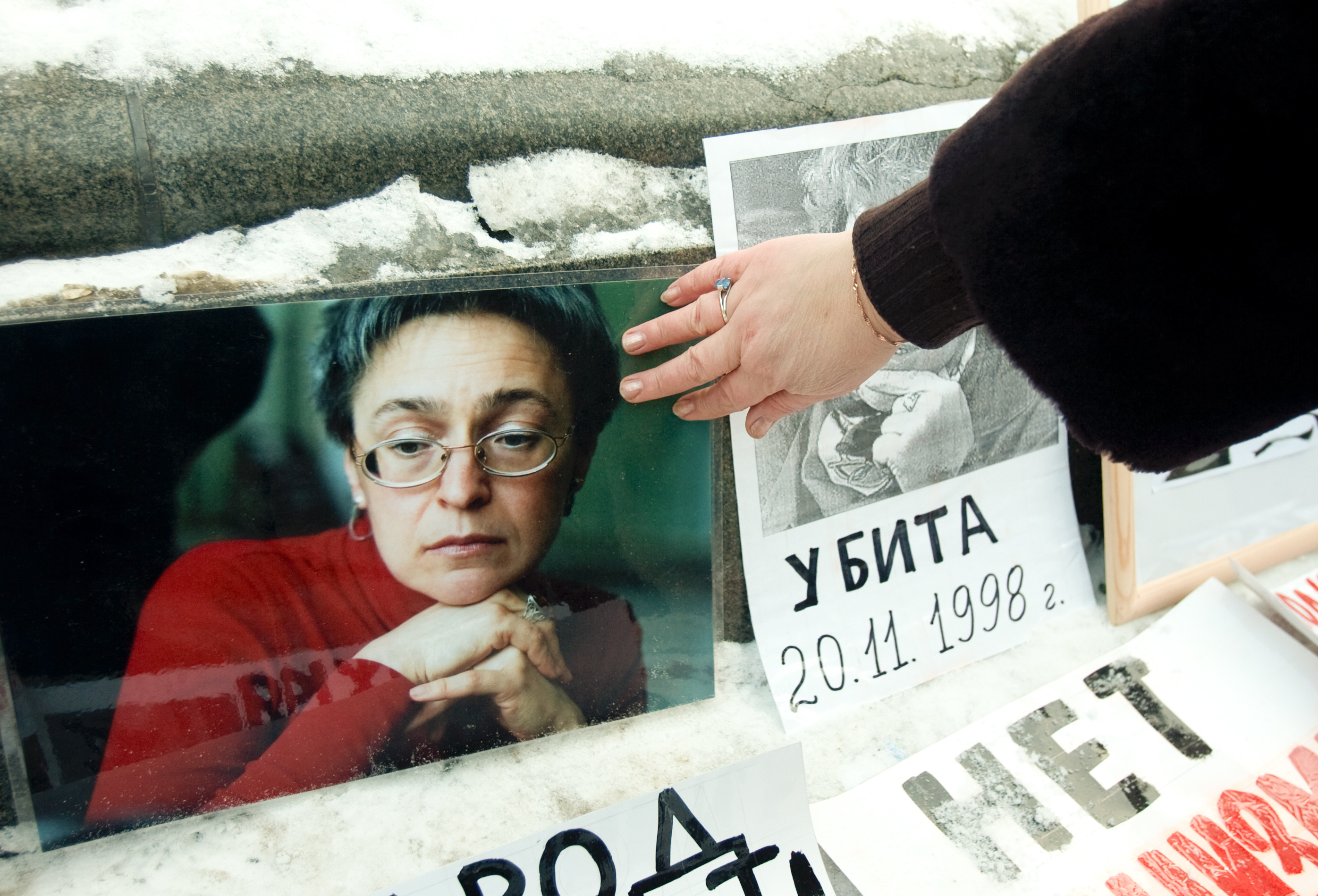The Crisis in Russia's Media
Below, listen to the complete audio from the event "Crisis in Russia's Media," held at Columbia University on October 18, 2010.

Photo: Reuters Pictures. A memorial in Moscow for murdered Russian journalists. The photograph is of Anna Politkovskaya, reporter and human rights activist, killed on October 7, 2006.
It has been four years since investigative journalist Anna Politkovskaya, who relentlessly uncovered political corruption and human rights violations in Chechnya, was gunned down in Moscow.
Russia remains a dangerous place for journalists. Seventeen journalists have been murdered in the country since 2000; all but one case remains unsolved. According to the Committee to Protect Journalists (CPJ), Russia currently ranks as the third deadliest country for the press (outranked only by Iraq and Algeria) and eighth on the CPJ impunity index of countries where journalists are killed and killers go free.
In 2007, a year after Politkovskaya's death, an organization called Reach All Women in War established the Anna Politkovskaya award to honor a woman human rights activist who works in the face of threats of violence. The first recipient was Natalia Estemirova, a frequent collaborator in Politkovskaya's investigations and board member of the organization Memorial, Russia's oldest human rights organization. Two years later, Estemirova herself was killed, in a murder Memorial blamed on "government-backed death squads."
There is some hope: five people have been convicted in the 2007 killing of journalist Igor Domnikov. The circumstances in Russia that working reporters, editors, producers and writers face could silence them out of fear, but journalists keep doing their important work. Nadezhda Azhgikhina, executive secretary of the Russian Union of Journalists, said in an interview, "The Russian media so far has been presented superficially in the West. It's not all tragedy. For one, we have a newly-established database of all recent Russian journalist deaths." There is also a proliferation blogs and Russian online media, many of which serve as important forums for discussion and criticism.
Monday, October 18, the Dart Center and the The Harriman Institute at Columbia University will host a discussion about the challenges facing journalists in Russia, the global campaign for an end to impunity in the cases of Politkovskaya and other assassinated journalists, and the evolving movement to advance Russian democracy through freedom of the press.
The event will feature Azhgikhina and Catharine Nepomnyashchy, Ann Whitney Olin professor of literature and culture, Columbia University, and chair of the Department of Slavic, Barnard College.
We hope you'll join us for this important conversation. The complete event information can be found here.